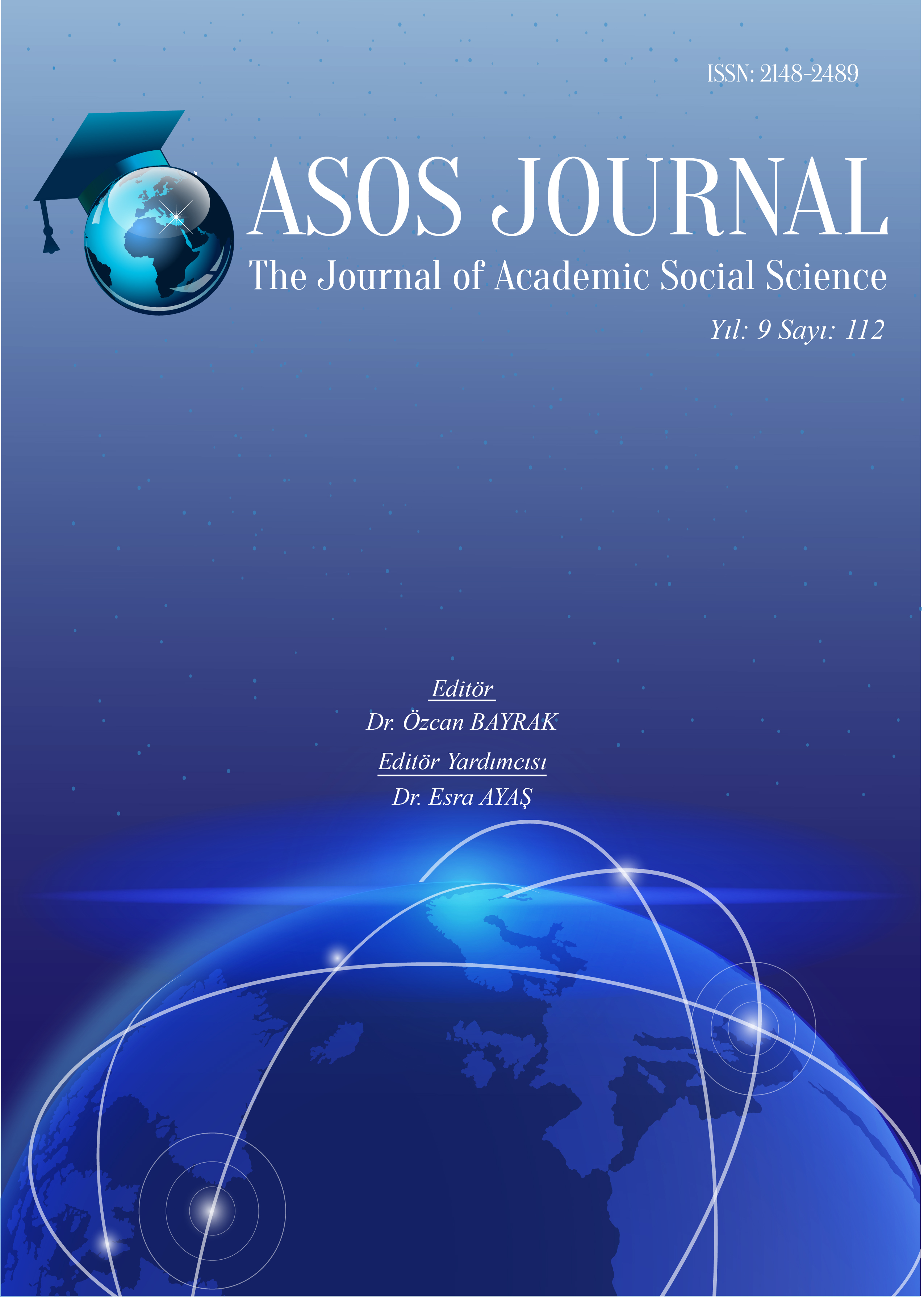Author :
Abstract
1962 yılında yaşanan Küba Krizi ile birlikte Amerika Birleşik Devletleri’nin dış politikasını gözden geçirmek durumunda kalmasıyla Soğuk Savaş döneminin iki bloğu arasında yumuşama sürecine geçilmiştir. Bu süreçte Amerika Birleşik Devletleri’nin ve Sovyetler Birliği etrafındaki devletler de dış politika alanlarını genişletme fırsatını yakalamışlardır. Bu dönem Amerika Birleşik Devletleri’nin yanında yer alan Türkiye de dış politikasını çok yönlü hale getirme çalışmalarına girişmiştir. Türk dış politikasında değişikliğe gidilmesinde Küba Krizi’nin sonuçlarının, 1963 yılı Kıbrıs olaylarının, Johnson mektubunun ve 1965 yılında Birleşmiş Milletlerde Kıbrıs konusu görüşülürken Türkiye’nin yalnız kalmasının etki ettiği görülmektedir. Ayrıca 1973 yılında petrol krizinin yaşanması, 1974 Kıbrıs Barış Harekâtı sonrası Amerika Birleşik Devletleri’nin Türkiye’ye ambargo uygulaması da Türk dış politikasına etki eden olaylardır. Türkiye bu gelişmelerle dış politikasını çok yönlü hale getirmeye çalışırken Bağlantısızlarla, Ortadoğu’yla ilişkilerini geliştirmeye önem vermiştir. Bunu yaparken Arap ülkelerinin içişlerine ve bu ülkeler arasında yaşanan sorunlara karışmamaya özen göstermiştir. 1967 ve 1973 yıllarındaki Arap-İsrail savaşlarında Arap ülkelerini desteklerken İsrail’le de ilişkilerini sürdürmüştür. İslam Konferansı Örgütü’ne Dışişleri Bakanlığı düzeyinde katılırken, Filistin Kurtuluş Örgütü’nü tanımıştır. Çalışmanın amacı 1960-1980 askeri darbeleri arasında Türkiye’nin Arap ülkelerine yönelik politikalarını belirlemektir.
Keywords
Abstract
With the Cuban Crisis in 1962, when the United States had to review its foreign policy, a process of softening was started between the two blocs of the Cold War period. In this process, the states around the United States and the Soviet Union also had the opportunity to expand their foreign policy areas. In this period, Turkey, which was beside the United States, has also attempted to make its foreign policy multi-faceted. While discussing the consequences of the Cuban Crisis, the Cyprus events in 1963, the Johnson letter and the Cyprus issue at the United Nations in 1965, it seems that Turkey’s being alone has an effect in making changes in Turkish foreign policy. In addition, the oil crisis in 1973 and the embargo imposed by United States on Turkey after the 1974 Cyprus Peace Operation are also events that affect Turkish foreign policy. While Turkey is trying to make its foreign policy multi-faceted with these developments, it has given special importance to developing its relations with the Non-Aligned, Middle East and also with Muslim Arab countries. While doing this, it took care not to interfere with the internal affairs of Arab countries and the problems between these countries. While supporting Arab countries in the 1967 and 1973 Arab-Israeli wars, it olsomaintained relations with Israel. While participating in the Organization of the Islamic Conference at the level of the Ministry of Foreign Affairs, it also recognized the Palestine Liberation Organization. The aim of the study is to determine Turkey’s policies towards Arab countries between the 1960-1980 military coups.
Keywords
- Cumhurbaşkanlığı Devlet Arşivleri Genel Müdürlüğü Cumhuriyet Arşivi (BCA). BCA, 30-18-1-2/155/1/1/Ek 76/ 30.05.1960/ Sayı: 1.
- BCA, 30-1-0-0/7/40/16/Ek A4/ 16.06.1960/Sayı: 1.
- BCA, 30-1-0-0/ 50-304-9/Ek D3/17.08.1962/Sayı: 1-5.BCA, 30-18-1-2/190-69-1/Ek 105/ 21.11.1965/Sayı: 1.
- BCA, 30-1-0-0/ 47-279-4/Ek C4/ 27.11.1966/Sayı 43- 44. BCA, 30-1-0-0/47/280/4/Ek C4/ 1967/Sayı: 41.
